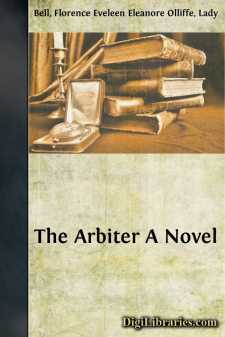Categories
- Antiques & Collectibles 13
- Architecture 36
- Art 48
- Bibles 22
- Biography & Autobiography 813
- Body, Mind & Spirit 142
- Business & Economics 28
- Children's Books 17
- Children's Fiction 14
- Computers 4
- Cooking 94
- Crafts & Hobbies 4
- Drama 346
- Education 46
- Family & Relationships 57
- Fiction 11829
- Games 19
- Gardening 17
- Health & Fitness 34
- History 1377
- House & Home 1
- Humor 147
- Juvenile Fiction 1873
- Juvenile Nonfiction 202
- Language Arts & Disciplines 88
- Law 16
- Literary Collections 686
- Literary Criticism 179
- Mathematics 13
- Medical 41
- Music 40
- Nature 179
- Non-Classifiable 1768
- Performing Arts 7
- Periodicals 1453
- Philosophy 64
- Photography 2
- Poetry 896
- Political Science 203
- Psychology 42
- Reference 154
- Religion 513
- Science 126
- Self-Help 84
- Social Science 81
- Sports & Recreation 34
- Study Aids 3
- Technology & Engineering 59
- Transportation 23
- Travel 463
- True Crime 29
The Arbiter A Novel
Categories:
Description:
Excerpt
CHAPTER I
"It is a great mistake," said Miss Martin emphatically, "for any sensible woman to show a husband she adores him."
"Even her own, Aunt Anna?" said Lady Gore, with a contented smile which Aunt Anna felt to be ignoble.
"Of course I meant her own," she said stiffly. "I should hardly have thought, Elinor, that after being married so many years you would have made jokes of that sort."
"That is just it," said Lady Gore, still annoyingly pleased with herself. "After adoring my husband for twenty-four years, it seems to me that I am an authority on the subject."
"Well, it is a great mistake," repeated Miss Martin firmly, as she got up, feeling that the repetition notably strengthened her position. "As I said before, no sensible woman should do it."
Lady Gore began to feel a little annoyed. It is fatiguing to hear one's aunt say the same thing twice. The burden of conversation is unequally distributed if one has to think of two answers to each one remark of one's interlocutor.
"And you are bringing up Rachel to do the same thing, you know," the old lady went on, roused to fresh indignation at the thought of her great-niece, and she pulled her little cloth jacket down, and generally shook herself together. Crabbed age and jackets should not live together. Age should be wrapped in the ample and tolerant cloak, hider of frailties. It was not Aunt Anna's fault, however, if her garments were uncompromising and scanty of outline. Predestination reigns nowhere more strongly than in clothes, and it would have been inconceivable that either Miss Martin's body or her mind should have assimilated the harmonious fluid adaptability of the draperies that framed and surrounded Lady Gore as she lay on her couch.
"I don't think it does her much harm," said Lady Gore, a good deal understating her conviction of her daughter's perfections.
"That's as may be," said Miss Martin encouragingly. "Where is she to-day, by the way?" she said, stopping on her way to the door.
"For a wonder she is not at home," Lady Gore said. "She has gone to stay away from me for the first time in her life; she is at Mrs. Feversham's, at Maidenhead, for the night."
"How girls do gad nowadays, to be sure!" said Miss Martin.
"I hardly think that can be said of Rachel," said Lady Gore.
"Whether Rachel does or not, my dear Elinor, girls do gad—there is no doubt about that. I'm sorry I have not seen William. He is too busy, I suppose," with a slightly ironical intonation. "Goodbye!"
"Can you find your way out?" said Lady Gore, ringing a hand-bell.
"Oh dear, yes," said Miss Martin. "Goodbye," and out she went.
Lady Gore leant back with a sigh of relief. A companion like Miss Martin makes a most excellent foil to solitude, and after she had departed, Lady Gore lay for a while in a state of pleasant quiescence. Why, she wondered, even supposing she herself did think too well of her husband, should Miss Martin object? Why do onlookers appear to resent the spectacle of a too united family? There is, no doubt, something exasperating in an excess of indiscriminating kindliness. But it is an amiable fault after all; and, besides, more discrimination may sometimes be required to discover the hidden good lurking in a fellow-creature than to perceive and deride his more obvious absurdities and defects. It would no doubt be a very great misfortune to see our belongings as they appear to the world at large, and the fay who should "gie us that giftie" ought indeed to be banished from every christening. Let us console ourselves: she commonly is.
But poor Miss Martin had no adoring belongings to shed the genial light of affection on her doings, to give her even mistaken admiration, better than none at all. Life had dealt but bleakly with her; she had always been in the shadow: small wonder then if her nature was blighted and her view of life soured....


